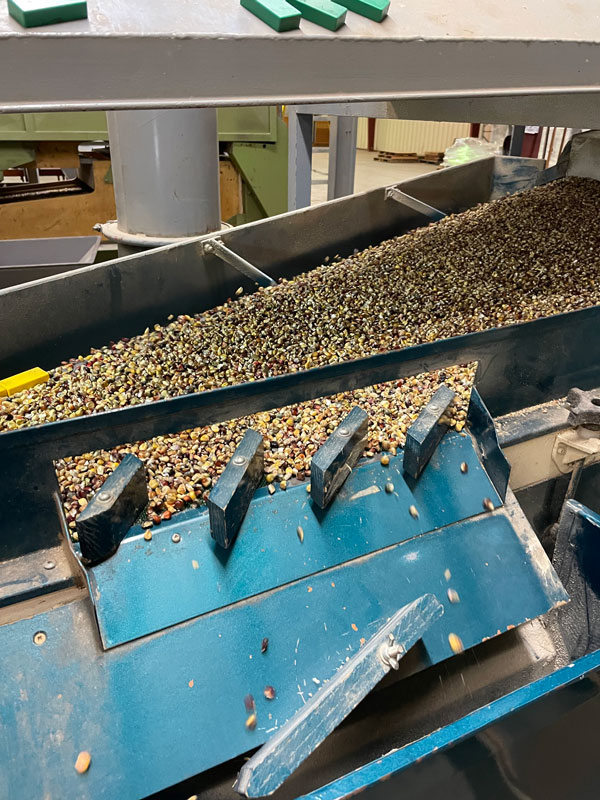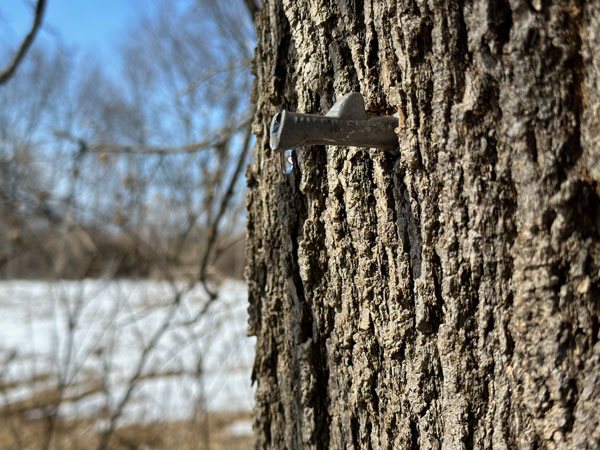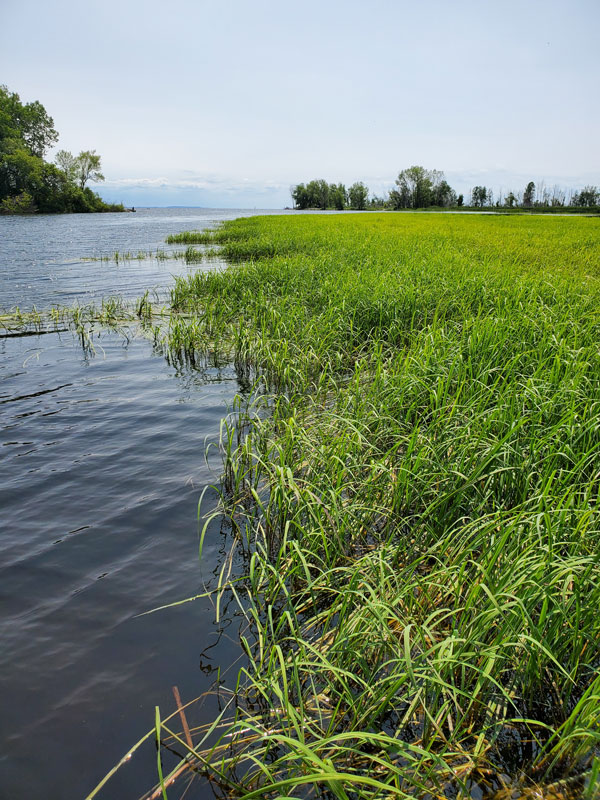Project Components
Project Components
Our project currently includes five main components spanning different parts of Indigenous food systems.
Indigenous Crops and Livestock
The Indigenous Crops & Livestock Team is partnering with the Ho-Chunk Department of Agriculture, Menominee Department of Agriculture and Food Systems, and Ohe·láku Corn Growers Cooperative in Oneida to support Tribal producers to scale up Indigenous corn production effectively, improve soil health, and grow multiple culturally important crops together with livestock. We are working with Tribal partners to research and demonstrate ways to mechanize Indigenous corn harvest and processing to support Tribal producers in meeting demand for Indigenous corn (such as for the Tribal Elder Food Box program).
We are working with the Division of Extension and UW College of Agriculture and Life Sciences to support our Tribal partners’ training needs, including introductory agronomy, soil health, equipment safety, and more.
The Indigenous Crops & Livestock Team also coordinates the UW Arboretum Indigenous Research Garden on Monroe Street. The garden was established in 2019 as a collaborative project for demonstrating traditional mounded companion planting, testing new research ideas, and engaging the campus and Madison communities around Indigenous food systems. If you are interested in volunteering at the garden, please reach out to Hanna McIntosh (hanna.mcintosh@wisc.edu).

Maple Sugaring and Production
Many Indigenous communities in the Great Lakes region have long traditions of tapping maple trees and boiling the sap to produce maple syrup and sugar. The Maple Sugaring Team is working to support Tribal maple syrup and sugar producers.
We are facilitating a Tribal Maple Sugaring Network hosted by the Division of Extension to enable sharing learning and storytelling, sharing technical expertise and experience with different equipment and methods, and capacity building among Tribal producers in the Great Lakes region.
In partnership with the Wisconsin Tribal Conservation Advisory Council, the Maple Sugaring Team is hosting in-person, virtual, and video learning opportunities for Tribal producers. These efforts have the goal of increasing Tribal production of maple syrup and sugar for cultural and economic benefits.

Wild Rice Restoration and Research
Manoomin is the word for wild rice in the Ojibwe language. Manoomin is an aquatic plant native to the Great Lakes region that is essential to cultural lifeways for Tribes, creates habitat for wildlife, and provides nutritious food. The Manoomin Team is working in multiple areas of the state supporting Tribal partners’ research, restoration, and outreach needs.
We are working with the Manoomin Restoration Partnership, Fond du Lac Band of Lake Superior Chippewa, Great Lakes Indian Fish & Wildlife Commission, and 1854 Treaty Authority to develop a research and outreach plan for wild rice restoration in chi-gami ziibi, the St. Louis River Estuary. The Manoomin Restoration Partnership has been conducting restoration on wild rice in this region since 2013. We are working together to address Tribal community concerns of how contaminants in the St. Louis River Estuary affect the health of restored manoomin and those who eat it.
The Manoomin Team is also hosting an annual wild rice camp at the St. Louis River Estuary for UW Superior students in partnership with the UW Superior Indigenous Cultures Resource Center.
In the Green Bay area, we are working to extend existing wild rice outreach and education programs with Green Bay West Shore education and restoration collaboration. UW-Green Bay has been leading a wild rice re-establishment and monitoring project in the Bay of Green Bay since 2016. Through the RPI Project, the group is working to expand connections with Tribal nations and communities. The Manoomin Team is also supporting the Wild Rice in the Classroom program, which helps K-12 educators grow wild rice at schools, by supporting building connections with Tribal Nations and organizations to expand programming about the cultural importance of wild rice.

Nutrition & Community Food Systems
Increasing access to healthy, traditional foods is vital to support Tribal members’ overall health and well-being. The Nutrition and Community Food Systems Team is working to align public benefit-nutrition related programs and Food Is Medicine efforts with Tribal food sovereignty efforts. The team is building on existing nutrition programs in Tribal communities by working with Tribal nutrition educators affiliated with the Great Lakes Inter-Tribal Council and the Extension Health & Well-Being Institute.
The Nutrition and Community Food Systems Team is also working to develop and map career pathways to Indigenous food sovereignty in Wisconsin. The development and expansion of Tribal farms and food processing creates new opportunities to reclaim and renew Indigenous foodways while creating culturally rooted and place-based jobs. They are working to ensure that Indigenous youth and young adults seeking careers in Indigenous food sovereignty can access training and professional development to lead this work.
Evaluation and Communication
The Evaluation Team is working throughout the duration of the project to ensure that the work benefits Tribal partners and communities. They are evaluating and documenting project progress, impact, and identifying ways to strengthen our partnerships and the work we do.
The Communications Team collaborates with the project team and Tribal partners to share project impacts and ensure that project communications and outreach are culturally appropriate and effectively reach Tribal audiences. Tribal partners lead the identification of communications priorities, and project team members involved in communications serve as co-creators to help partners achieve their communication goals related to each of the project areas. The Communications Team has collaborated with our Tribal parters to develop an overarching set of goals, principles, processes, and shared expectations for how the project team communicates internally and externally about the RPI Indigenous Food Systems project.
We are investing in videography to support our Tribal partners’ communications needs, highlight intertribal food systems work, and show how our partnerships benefit Tribal communities.




